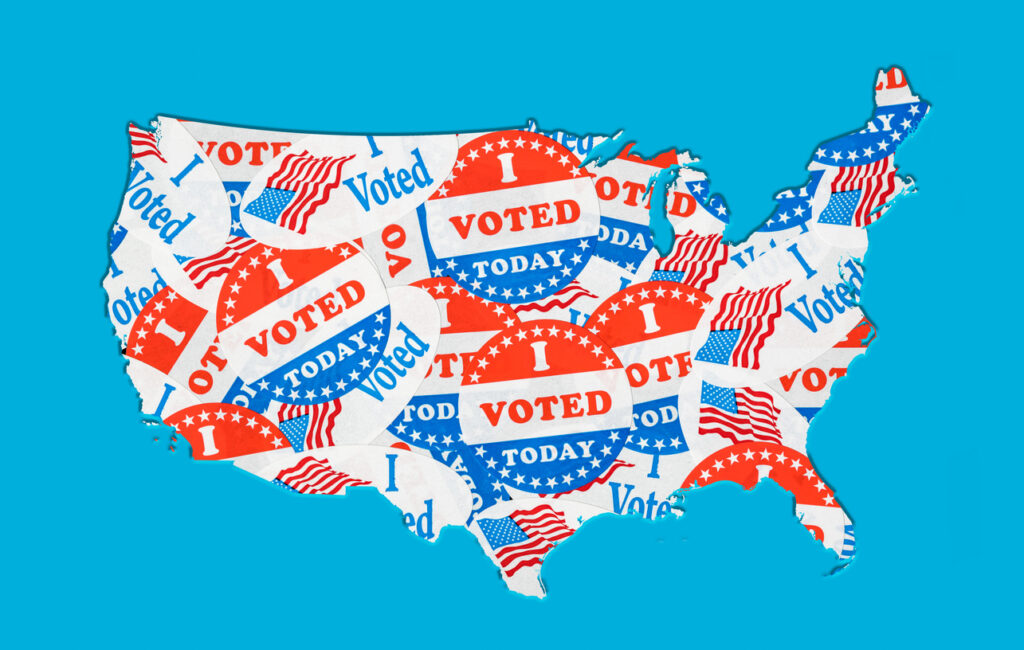This post was written by NCTE member Cody Miller.
Another night of election results proves that fighting for the freedom to read remains a politically winning issue. Several states held elections on November 7, 2023. These elections don’t receive the attention presidential and midterm elections garner, but their results have immediate impact on schools and can echo national trends. With book banning legislation still being enacted in states, it’s important to consider how advocates are organizing against book bans and securing victories for the freedom to read. Election results from three states paint a picture that should offer hope and a roadmap for educators horrified by the wave of book banning policies.
First, look at Bucks County in Pennsylvania. The Bucks County district results are important given that millions of dollars of outside spending were poured into the race to support advocates of book banning. The goal of such spending, according to Politico, was to create a groundwork to build support for more book banning efforts moving into next year’s presidential election. The conservative majority of Bucks County school district was leading the state in banning books from schools and libraries. However, that trend has met an expiration date as every single Moms for Liberty-endorsed candidate lost their race to opponents who championed the right to read. Once sworn in, the new Bucks County school board will be one where students have access to books and honest curriculum. Equally important, the groundwork meant to bolster future book banning candidates has been demolished by voters and public school advocates.
Next, the results in Iowa illustrate how local organizing is securing wins against book banning politicians. Moms for Liberty-endorsed candidates in Iowa lost in every race in Cedar Rapids, Linn-Marr, Ankeny, Johnston, Urbandale, Waukee, and West Des Moines. Despite its small size, Iowa looms large in the American political imagination due to its status as a caucus state in presidential elections. The current governor, Kim Reynolds, has been a leading advocate for book bans and anti-trans school policies. Reynolds has endorsed Ron Desantis in the upcoming Republican presidential primary and has used her office to mimic his approach to public schools. Defeating book banning politicians in Iowa in November 2023 should send a clear message that attacking public schools and intellectual freedom will come with an electoral cost.
Finally, we turn to Virginia. In some ways, Virginia is as much of a weathervane as Florida for our current book banning political landscape. In 2021 the attacks on critical race theory, COVID measures, and inclusive curriculum were seen to produce wins for conservative politician Glenn Youngkin in the governor’s race. Stories about the Loudon Country school board filled headlines of major newspapers as some journalists predicted a backlash to inclusive curriculum and teaching honest history. Two years later, candidates who ran on banning books and curtailing LGBTQIA+ protections for students lost their races in the district. To many in the media, Loudon County is a “poster child for the ongoing battle over the control of America’s public schools, including debates over so-called parental rights, what educators are allowed to teach, LGBTQ+ issues, and pandemic policies.” The 2023 results indicate that the freedom to read, supporting LGBTQIA+ students, and standing with public education are key to winning said battle.
Elsewhere in Virginia, Meg Bryce, the late daughter of Supreme Court Justice Antonin Scalia, lost her race for school board in Albemarle County to Allison Spillman. Justice Scalia spent his time on the Supreme Court ruling against LGBTQIA+ rights and had a particularly hostile approach to LGBTQIA+ teachers. His daughter sought to continue that legacy by enacting anti-LGBTQIA+ policies as a school board member. Spillman, the parent of a trans child, defeated Bryce by running on a platform that included the freedom to read, learn about honest history, and protect LGBTQIA+ students in K–12 schools.
There are other races across the country that can provide insight into the current state of book banning in our politics. They tell similar stories to the ones I’ve outlined here: banning books is a losing political issue; advocating for the freedom to win is a winning political issue. These wins may not be too surprising given how deeply unpopular book banning is to the public. Additionally, the majority of book bans enacted during 2021–2022 in the nation come from the advocacy of 11 people. Eleven people may be able to currently get hundreds of book bans passed, but their total tally of votes is just that: 11. We can continue to build a coalition to push for the freedom to read.
The results from elections in Pennsylvania, Iowa, and Virginia illuminate what successful organizing and advocating for public schools and the freedom to read can produce. We can learn from and build on this momentum to continue fighting for our students’ right to read and our teachers’ right to teach. I’ve previously outlined steps educators can take to advocate for the rights of students to read freely. Organizations like United Against Book Bans and PEN America also offer practical, important steps we can take.
Looking ahead, book banning will undoubtedly play a major role in next year’s presidential race. Both the 2022 midterms and the 2023 state elections have shown us that advocates for the freedom to read can win this battle. Let us thank the organizers and advocates who secured the freedom to read in this last election. Then, let us learn from them and support them in the upcoming year. Our students, teachers, communities, and democracy depend on it.

Cody Miller is an associate professor of English education at SUNY Brockport. During his seven years as a high school English teacher and in his current role, he has positioned texts as vehicles to discuss broader sociopolitical issues in students’ lives and worlds. Miller is the editor of English Leadership Quarterly. He was awarded NCTE’s LGBTQIA+ Advocacy & Leadership Award in 2022. He can be reached at hmiller@brockport.edu or on X, formerly Twitter, at @CodyMillerELA.
It is the policy of NCTE in all publications, including the Literacy & NCTE blog, to provide a forum for the open discussion of ideas concerning the content and the teaching of English and the language arts. Publicity accorded to any particular point of view does not imply endorsement by the Executive Committee, the Board of Directors, the staff, or the membership at large, except in announcements of policy, where such endorsement is clearly specified.

